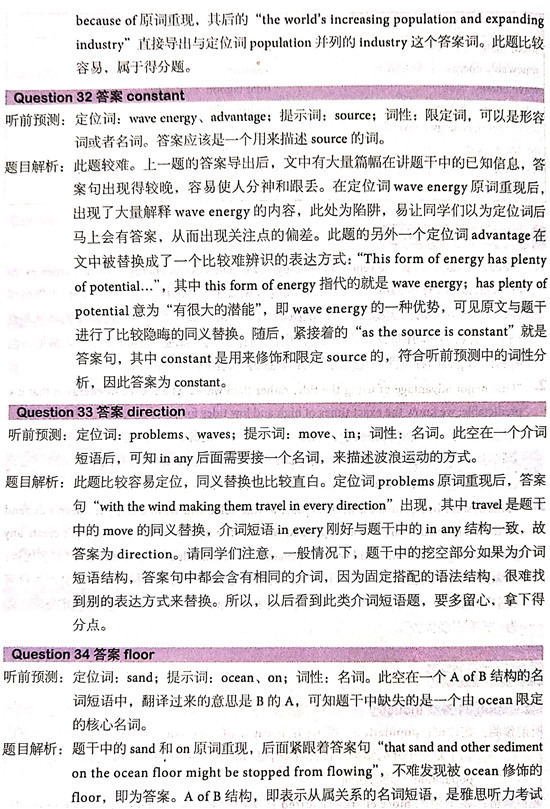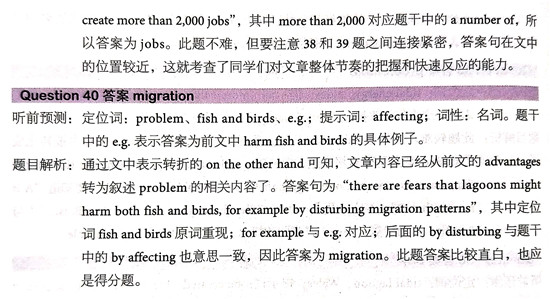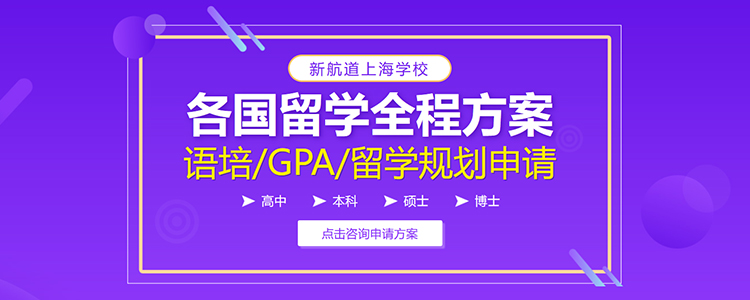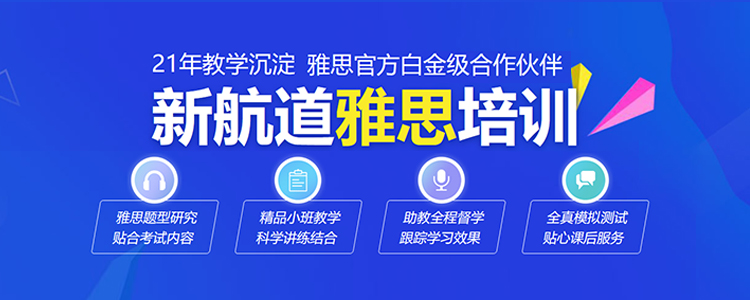剑桥雅思14Test1雅思听力Section4真题解析及答案
剑桥雅思14Test1雅思听力Section4真题解析及答案
Section 4
谈话场景:讲座场景
人物关系:主讲人独白
谈话话题:不同类别的海洋可再生能源的优缺点
交际与语言表达
1."Today I'll outline marine renewable energy-also called ocean energy-which harnesses the movement of the oceans.”"(今天,我将为大家概述一下海洋可再生能源,也叫作海洋能,即一种利用海洋运动而产生的能源。)其中, outline是雅思听力考试中的高频考点词汇,有名词和动词两种词性,此处用作动词,意为“概述”; harness不太常见,也有名词和动词两种词性,此处用作动词,意为“利用(以产生能量等)”。
2."One major advantage of using the tide, rather than waves, as a source of energy is that it's predictable: we know the exact times of high and low tides for years to come."(和波浪相比利用潮汐的一个主要优势在于,它是一种可预测的能源,即我们能够预测未来几年涨潮和退潮的确切时间。)其中 rather than意为“而不是”,是听力考试中常见的否定表达用词; for years to come意为“未来几年”,表示将来。
3."This system has quite a lot in its favour: unlike solar and wind energy it doesnt depend on the weather: the turbines are operated without the need for fuel, so it doesn't create any henhouse gas emissions; and very little maintenance is needed."(这个系统拥有很多优势 gre不像太阳能和风能,它不依赖于天气;涡轮机运行时不需要燃料,所以不会产生任何温室气体排放;而且几乎不需要维护。)其中 has quite a lot in its favour为固定搭配,意为“拥有很多优势”。
考题解析




相关推荐:
剑桥雅思14Test1雅思听力Section3真题解析及答案
剑桥雅思14Test1雅思听力Section2真题解析及答案
剑桥雅思14Test1雅思听力Section1真题解析及答案
上海新航道专注雅思教育14年,每120分钟就有一位高分学员来自新航道,加入新航道,实现高分梦!










